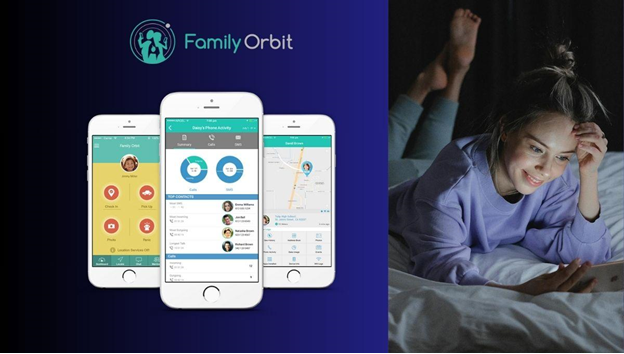How Technology is Revolutionizing Health Insurance Plans for the Digital Age
Technology will integrate more into the health insurance industry, thus offering personalised solutions with better efficiency.

Technology drives the fast pace of health insurance, simplifying processes and making services more personalised. Today, insurers are harnessing some of the most advanced tools to enhance services, accelerate claims processing, and support efforts geared towards preventive care.
These developments enhance the insurers and provide policyholders with a better health insurance plan and positive health outcomes. With the endorsement of technology by insurers right from their underwriting to claims processing, patients will access healthcare and treatment without financial burden. Let's discuss how digital insurers are already travelling the road to patient-oriented insurance.
Telemedicine for Remote Consultations
Telemedicine allows patients to consult doctors without the need to go to clinics. Several insurers now add telehealth services to their plans. This saves time and costs and provides rapid hands-on support when required. Companies may even offer virtual consultations free of charge, creating more equitable access. The new policies also include remote diagnostics and digital prescriptions, so virtual care remains a feasible and appealing alternative for those living in areas with little access to advanced healthcare centres.
AI and Machine Learning for Smart Policies
Artificial Intelligence (AI) and Machine Learning (ML) facilitate insurers in data analysis for fraud detection and custom coverage. AI chatbots provide 24/7 customer service with instantaneous replies to queries. This lets patients make speedy diagnoses and treatments. The same technologies are used to assess health risks so insurers can design personalized policies. AI-enhanced underwriting reduces the policy issuance turnaround time, making insurance more accessible.
Wearable Devices for Personalised Coverage
Smartbands and smartwatches give insurers real-time health data, and they provide discounts and rewards for healthy living according to the information resulting from this data. This will motivate the policyholders to live healthily; another benefit is discounted premiums. Thus, it greatly lowers the claims and medical costs since individuals are well. Some insurers have also started basing the premiums on the real-time health monitoring of the individuals, hence making the policy flexible.
Data Management through Blockchains
Blockchains are the lock and key of medical records: they keep them safe from unauthorized users and fit into established systems to improve security and transparency. Speed so optimally, the claims and fraud prevention are done without putting private information at risk. It also allows information sharing among insurers and healthcare providers without the possibility of errors in policy management due to the decentralised storage of records. However, the insurer's end would require heavy investment in the technology.
Personalized Health Plans from Big Data
Using big data, insurance providers can now offer every customer a tailored health insurance plan. Clients are more likely to find coverage options extremely relevant at individual and household levels by taking into consideration the medical history and lifestyle factors of clients. Customer satisfaction generates better health outcomes. Predictive analytics can also help insurers forecast health trends for proactive movement in adjusting policies. It would also benefit the policyholders as they would customize coverage under family insurance for the individual members.
Mobile Apps for Easy Access
Currently, many companies have mobile applications for insurance policy management. The application allows users to confirm their coverage status, file claims, or set up telemedicine services. Digital platforms enhance convenience while ensuring easy policy management, considering clients pay their policy premiums via the app. Others would come with AI-enabled health-tracking features that engage users with their well-being.
Predictive Analytics for Preventive Care
With predictive analytics, insurers can detect chronic disease early, providing preventive healthcare programs to reduce risks. By providing preventive care, insurers can keep long-term costs down while ensuring the customers' health. Many insurers now partner with healthcare providers to enable targeted Wellness plans.
Automation for Faster Claims
With AI automation, the claim process can be accelerated. It helps chop down manual work, diminishes errors, and promotes rapid reimbursement. This easy procedure cultivates trust from customers and enhances their satisfaction. Within the speedier claims settlement, robotic process automation (RPA) reduces the processing time, which is urgent since it is now a clause under the IRDAI to settle insurance claims within the stipulated time.
Virtual Health Assistants for 24/7 Support
AI-assisted health assistants provide medical advice 24 hours a day. They respond to health inquiries, remind users to take their medications, and assist in managing chronic conditions. The virtual assistants foster policyholders' engagement while supporting better health management. The health insurance industry has started utilizing virtual health coaches to encourage healthy behaviour. This can be particularly beneficial for seniors living alone or patients with trouble remembering to take their medications promptly.
Takeaway
Technology will integrate more into the health insurance industry, thus offering personalised solutions with better efficiency. The adoption of digital tools will improve customer experience and health outcomes.
Future innovations might comprise AI diagnostics, blockchain-based health records, and fully automated claims to make insurance a seamless and transparent experience. Such investments in insurance will also facilitate the insurers to scale up and capture new markets, thereby expanding insurance penetration.






